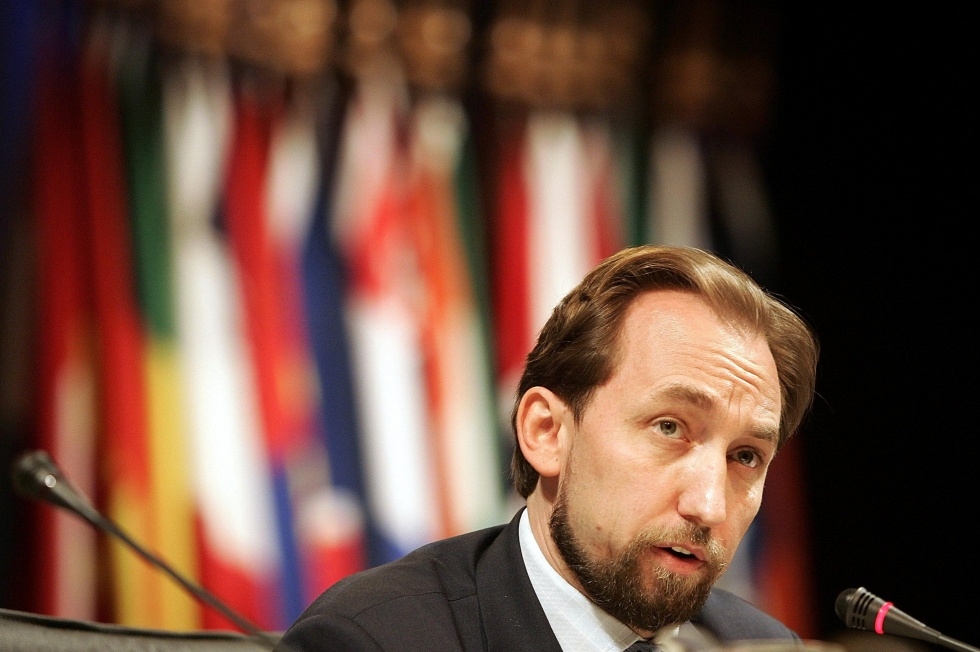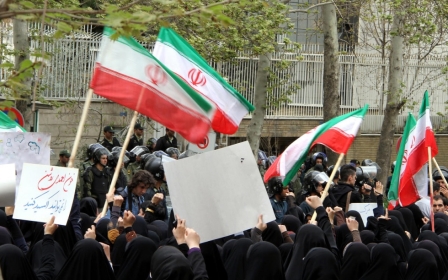Jordanian prince to be next UN human-rights chief

A Jordanian prince will be the next human-rights chief at the United Nations, after his nomination was approved by consensus at the General Assembly in New York on Monday.
Prince Zeid al-Hussein, a cousin of Jordanian King Abdullah II, will be the first Muslim and Arab to hold the post when he takes over from South African Navi Pillay on 1 September for a four-year term.
“I am going to be the first High Commissioner from the Asian continent and from the Muslim and Arab Worlds,” Prince Zaid told the 193-member General Assembly after his appointment was approved. “Needless to say this reflects the commitment of the international community towards this important dossier and its commitment to push it forward in this continent, as well as in other regions of the world.”
Prince Zeid is currently Jordan’s permanent representative to the UN and he has a distinguished career in diplomacy, previously serving as his country’s ambassador to the United States and Mexico. He has extensive human-rights experience, as president of the International Criminal Court’s membership body for three years from 2002, and has chaired negotiations on elements of individual offences for the crimes of genocide, crimes against humanity and war crimes.
Human rights advocates welcomed the appointment, praising Zeid’s global human-rights work.
“Prince Zeid’s work on sexual violence and his leadership on the international criminal court give a good foundation for this new role,” Peggy Hicks, global advocacy director at Human Rights Watch, told Foreign Policy. “As states in his region silence civil society and crush peaceful protests, the real test for Prince Zeid will be his willingness to stand up to abusive governments and speak out for those facing injustice and human rights violations worldwide.”
In his address to the General Assembly on Monday, Zeid joked that the applause welcoming his appointment may sour once he starts his new job.
“My supportive wife told me to enjoy this moment, to soak it all up, after all, she said, you are among friends who you’ve known for a very long time,” he said. “Because when you start this this job, she added, you may not have them for very long.”
Zeid has previously pushed for an international investigation into alleged war crimes committed in the Syrian civil war, a proposal that was blocked by permanent Security Council members Russia and China. He has also challenged the UN itself, as in 2004 when he led a far-reaching review into sexual misconduct by UN peacekeepers in the Democratic Republic of Congo.
In his new position as head of the Office of the High Commissioner for Human Rights in Geneva, Zeid will be charged with shedding light on human-rights abuses across the world. It is likely Syria will be an area of focus for him, where a brutal civil war has killed more than 162,000 people in three years, and is an issue outgoing rights chief Pillay has worked on consistently in recent months.
She has supervised an inquiry into rights violations in Syria and attempted to win international support for an ICC case against alleged Syrian war criminals. If Zeid takes up the case he will likely face tremendous difficulty in finding international consensus on Syria, as the UN has been hamstrung by competing political allegiances and failed to act collaboratively in combating what continues to be a brutal civil war.
New MEE newsletter: Jerusalem Dispatch
Sign up to get the latest insights and analysis on Israel-Palestine, alongside Turkey Unpacked and other MEE newsletters
Middle East Eye delivers independent and unrivalled coverage and analysis of the Middle East, North Africa and beyond. To learn more about republishing this content and the associated fees, please fill out this form. More about MEE can be found here.




